15 October 2019, 18:32
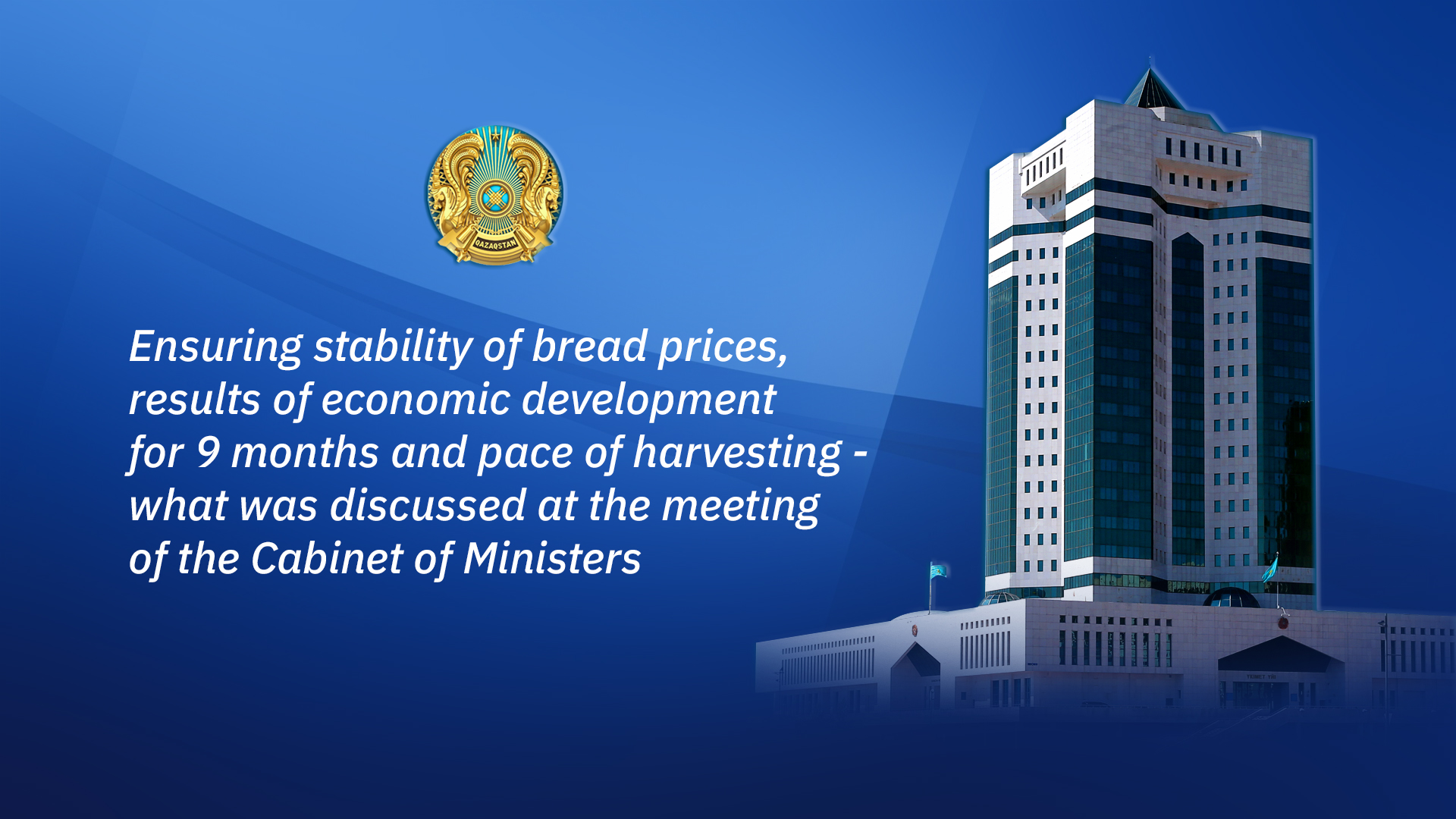
Oct. 14, 2019, at the Government session, the results of the country's socio-economic development and the implementation of the republican budget for January-September 2019 were considered, and the results of the harvesting were also summed up. On the sidelines of the Government, media representatives received answers to their questions and a press conference was held with the participation of Minister of Agriculture Saparkhan Omarov, Vice Minister of Agriculture Rustem Kurmanov and Managing Director of NC Food Corporation Nurbek Dairbekov.
Considering the first issue, the Prime Minister Askar Mamin was informed that in January-September 2019, GDP growth amounted to 4.3% compared to the corresponding period last year. The assets of the National Fund increased by 2.4% to $59.4 billion, revenues to the republican budget — 7,677.6 billion tenge (100.8% of the plan), the growth rate was 112.6%.
The average per capita nominal cash income of the population in January-July 2019 amounted to 686 thousand tenge and increased, compared with the corresponding period of 2018, by 10% in nominal terms, in real terms — by 4.7%.
Industrial production for 9 months of 2019 increased by 3.3%. The growth driver was both manufacturing and mining.
In processing, the largest growth was achieved in light industry, machine building, beverage production and pharmaceuticals. In agricultural sectors, livestock production increased by 3.5%. In the service sector, growth was 4.4%. In trade volumes increased by 7.6% due to wholesale trade. Transportation services increased by 5.5% due to cargo turnover. For January – August 2019, foreign trade turnover increased by 1.8% to $62.1 billion. Export volumes amounted to $ 37.6 billion. Import amounted to $24.5 billion. Positive growth dynamics in the main indicators are noted in many regions.
According to the results of 9 months, Askar Mamin noted the positive work of the Akimats of Atyrau, East Kazakhstan, Turkistan, Zhambyl, Pavlodar regions on the main basic indicators of economic growth, instructing the leaders of the lagging regions to correct their situation as soon as possible.
The head of Government pointed out the need for akims to take all necessary measures to implement the approved indicators for local content, as well as ensuring compliance with the requirements of the legislation, industrial certificate and ST-KZ certificate.
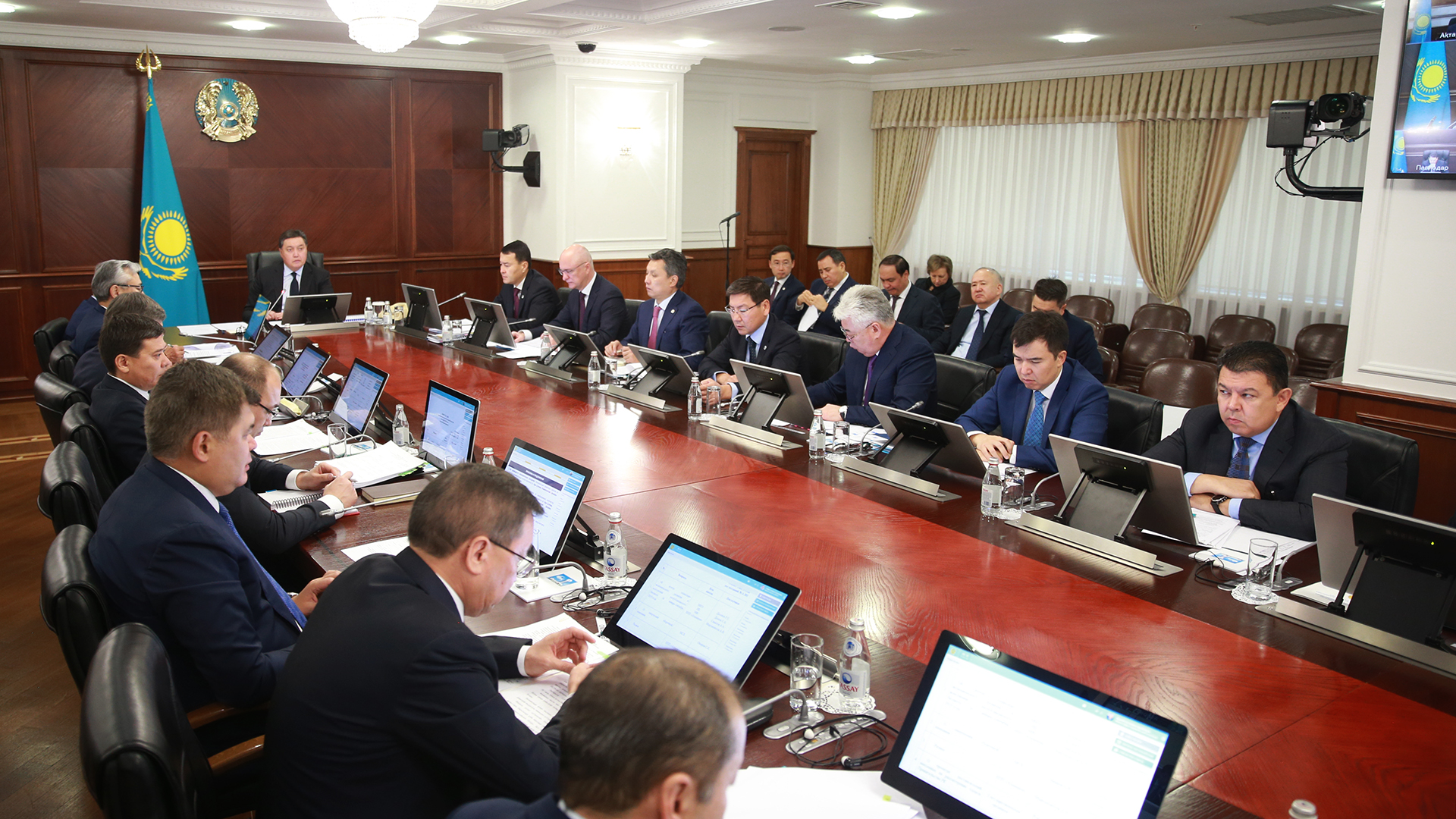
The prime minister noted good performance in increasing the Kazakhstani content in purchases from akimats of Kyzylorda, Pavlodar and Turkestan regions. The head of Government instructed Atameken National Chamber of Entrepreneurs and the Ministry of Finance to conduct additional seminars with akimats regarding the correct work on public procurement.
“Once again, I note that upon the achievement of these planned indicators the work of the leaders of the regions will be evaluated,” summarized Mamin.
When considering the second issue, the prime minister was informed that so far 15.1 million hectares have been harvested from the total area of grain crops in 15.2 million hectares, which is 99.2%. 19.1 million tons of grain were harvested with an average yield of 12.6 kg / ha. According to preliminary estimates, this year the grain and leguminous crops can reach almost 19 million tons in bunker weight, which is 2 million less than the 2018 crop.
“This year, due to difficult weather conditions, we harvested grain 2 million tons less in bunker weight than last year. I instruct the Ministry of Agriculture to ensure timely procurement of grain by the Food Corporation to stabilize bread prices,” said Mamin.
The head of Government emphasized that, taking into account the climate in Kazakhstan, it is necessary to make every effort to preserve the harvest, to ensure that grain-receiving enterprises receive grain in time for storage, as well as process and dry grain.
The prime minister instructed to ensure the needs of agricultural units in seeds for the next year’s crop and to check their quality, take measures to address logistics issues as part of the preparatory work for the export of new grain, and also, taking into account the increased humidity of crops, consider allocating additional volume diesel fuel to regions for drying grain and seeds in October-November of this year
Following the meeting, a press conference was held on the development of the agro-industrial complex on the implementation of the President’s Address “Constructive Public Dialogue – the Basis of Stability and Prosperity of Kazakhstan.”
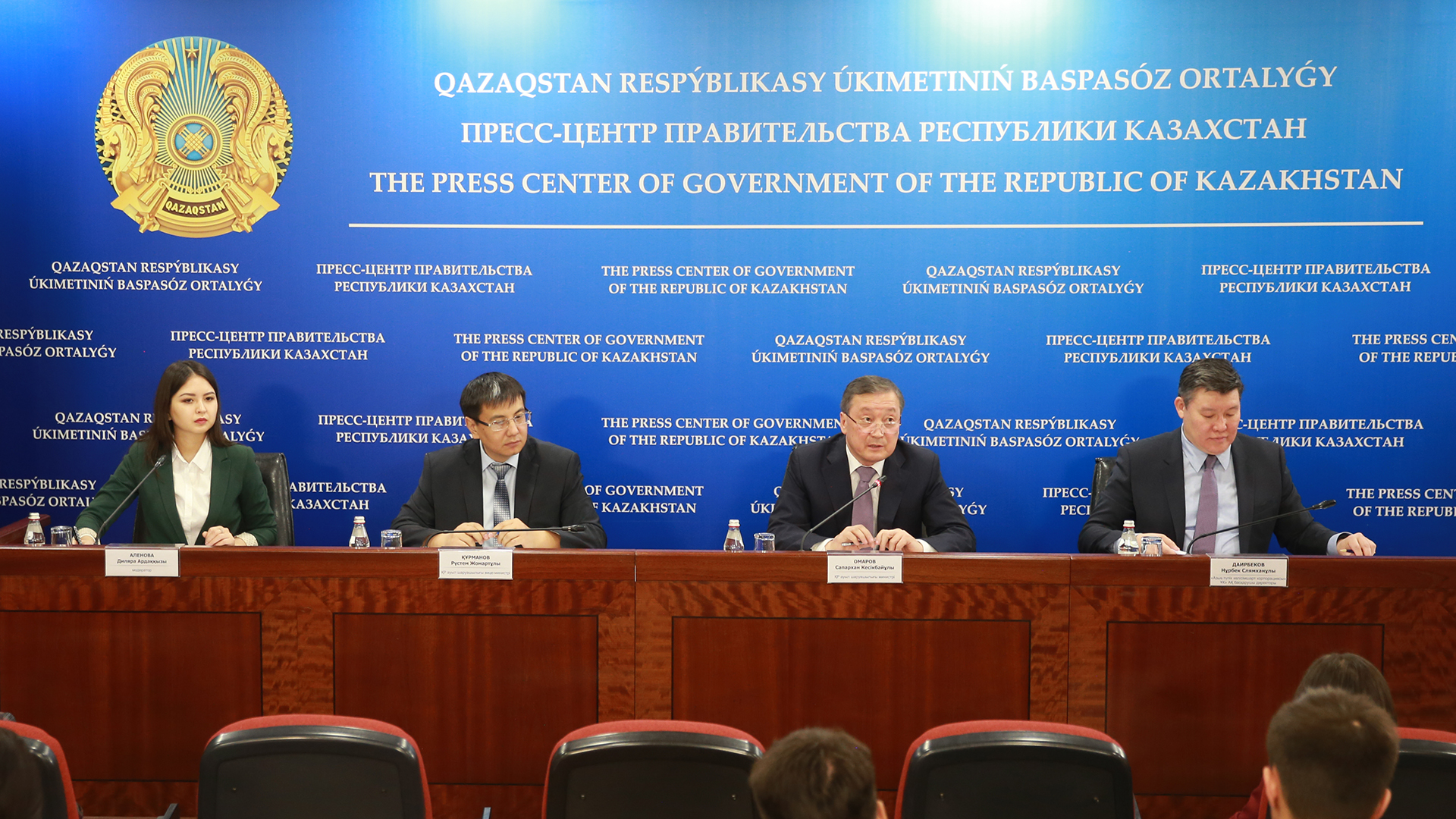
In his speech, Minister of Agriculture Saparkhan Omarov said that within the framework of the current State Program for the Development of the Agro-Industrial Complex for 2017-2021, it is planned to put into circulation new lands on an area of 610 thousand hectares by 2021.
In order to achieve this goal, efforts are being made to identify potential investors for the construction of irrigation networks and to implement projects for the development of new irrigated lands with the participation of private partnership through the public-private partnership mechanism.
“The implementation of the above measures will increase the area of irrigated land to 3 million hectares by 2030 and ensure growth in agricultural production by 4.5 times,” the minister said.
The ministry has developed a roadmap on the withdrawal of unused agricultural land. As part of this Roadmap, a phased increase in tax on unused land is planned.
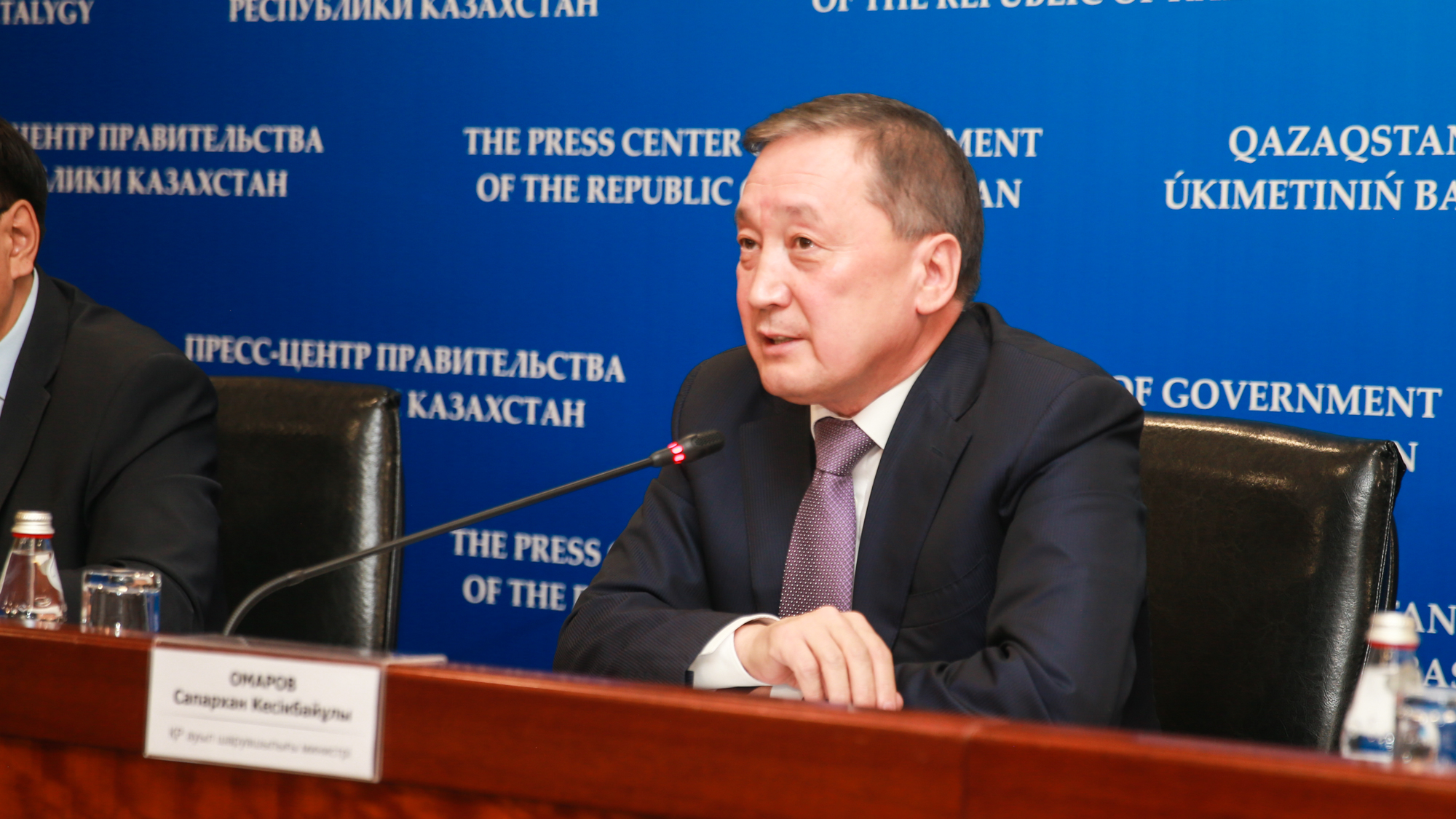
Omarov also spoke about the development of a mechanism for notifying land users about the beginning and results of verification by SMS messages.
Currently, the draft Roadmap is under discussion by state authorities. Under this law, the approaches of the insurance system in agriculture will be changed: the transition from compulsory to voluntary insurance, as well as from subsidizing insurance payments to subsidizing insurance premiums.
In addition, control and supervision functions from akimats and customs authorities will be returned to the Ministry of Agriculture, as well as subsidizing part of the costs of the business for financing research to involve entrepreneurs in introducing innovations.
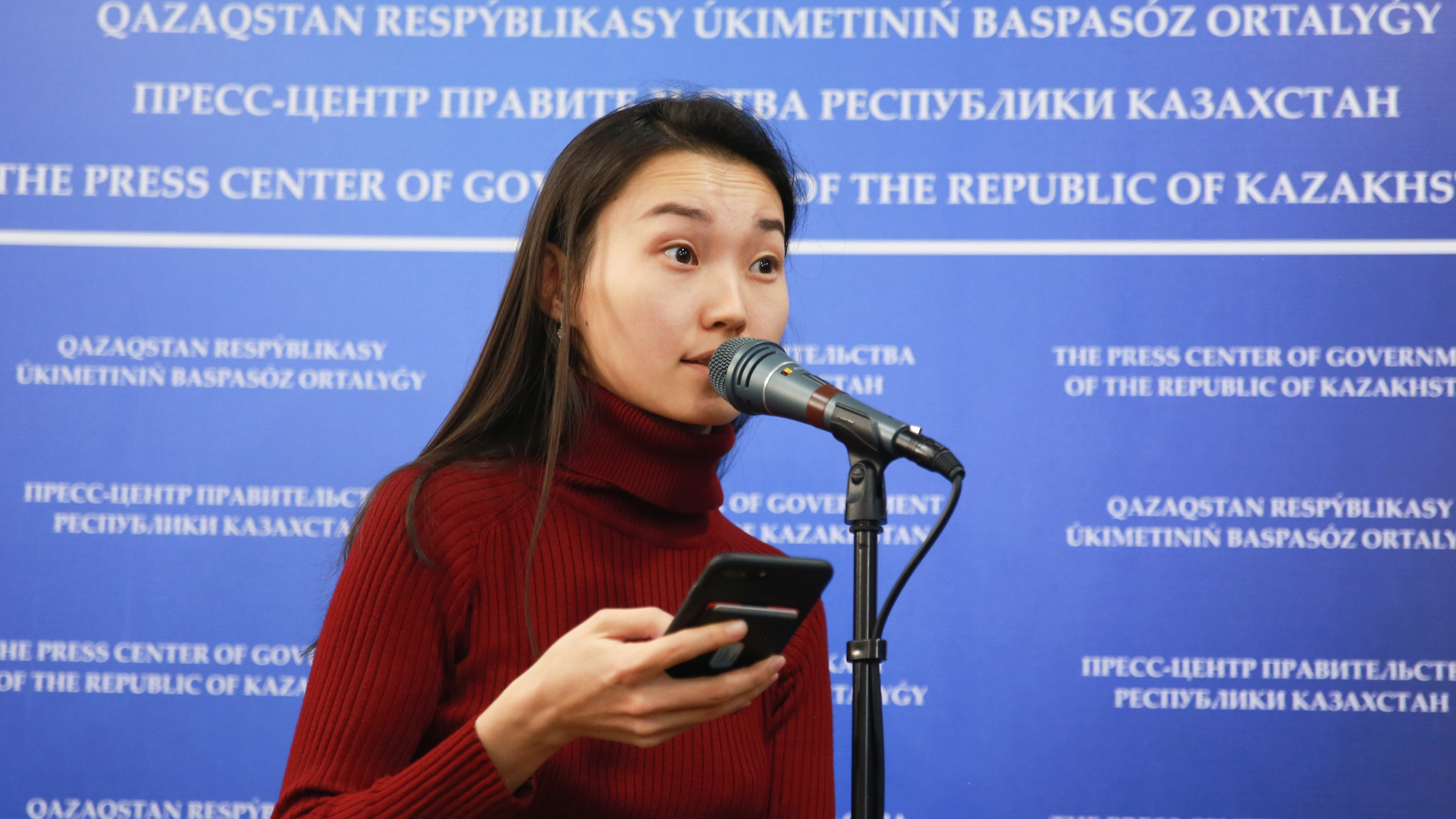
Answering journalists' questions regarding changes in bread prices, Omarov said that a slight increase in prices is expected, but the Food Corporation has enough grain to prevent a sharp jump in pricing. According to him, the formation of the price of bread depends not only on wheat, there are other additional costs. This is energy consumption, wages, fuel, etc.
“It all depends on the market situation. To date, only 2.9 million tons of grain have been delivered to elevators. By the end of November, all the grain will be at the elevators, then we will understand what the price will be. The price of bread depends not only on wheat, wheat in the formation of the price of bread is around 54%. The rest is subject to other additional costs. We will work to ensure that there is no sharp jump in bread. Now the price of bread is in the region of 75-78 tenge, depending on the region. I assume that there will be a slight increase,” Omarov assured.
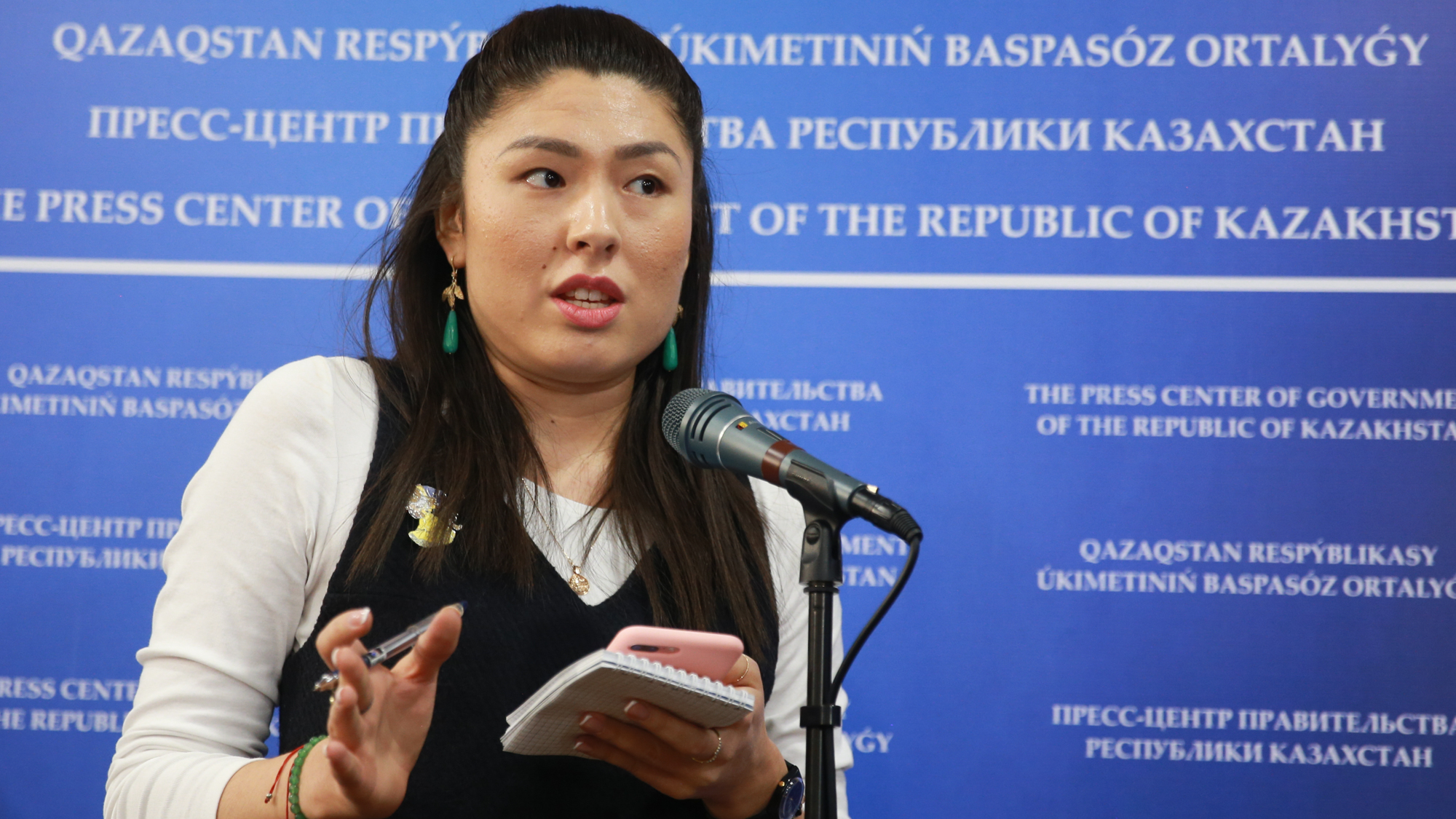
In turn, the Vice Minister of Agriculture Rustem Kurmanov emphasized that today in the stabilization fund of the Food Corporation there are 350 thousand tons of grain, plus another 70 thousand tons that are contracted — this is about 400-420 thousand tons of grain. This volume is enough to stabilize prices in the domestic market.
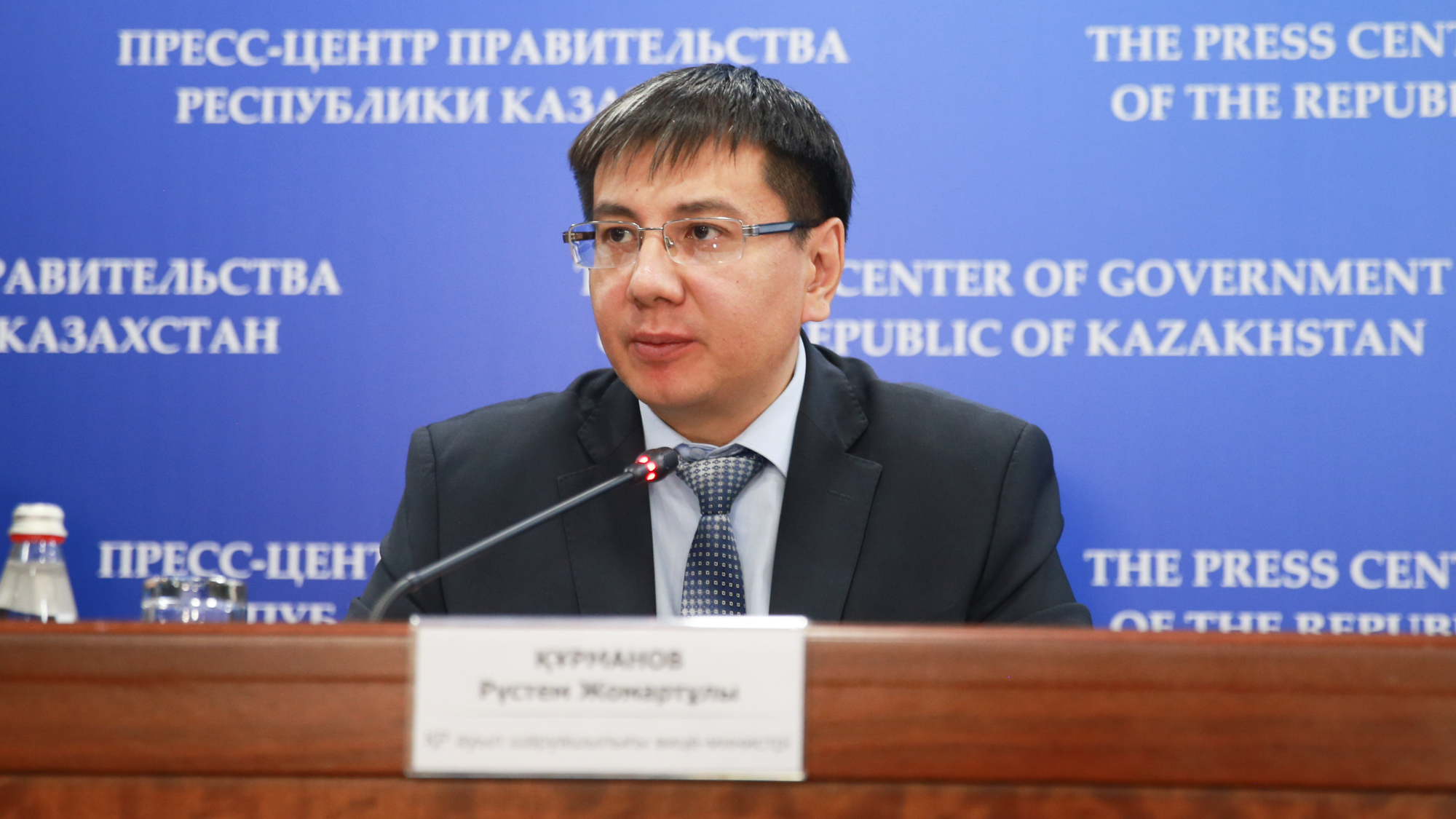
According to Managing Director of NC Food Corporation JSC Nurbek Dairbekov, there are currently 187 licensed grain receiving enterprises with a total storage capacity of about 12.2 million tons, which, on the basis of a license issued by akimats, provide storage services with grain production receipts.
“Today, the Food Corporation is monitoring bread prices throughout the republic. We look at what quality wheat was harvested, how much was harvested. Based on these figures, we develop our own actions. Based on the harvesting results, we will make a full assessment and come up with new offers to the market in order to form stabilization funds of the food corporation so that in the autumn-spring period in 2020 we have tools to stabilize prices on the domestic market and if there is a need to reduce them,” said Dairbekov.
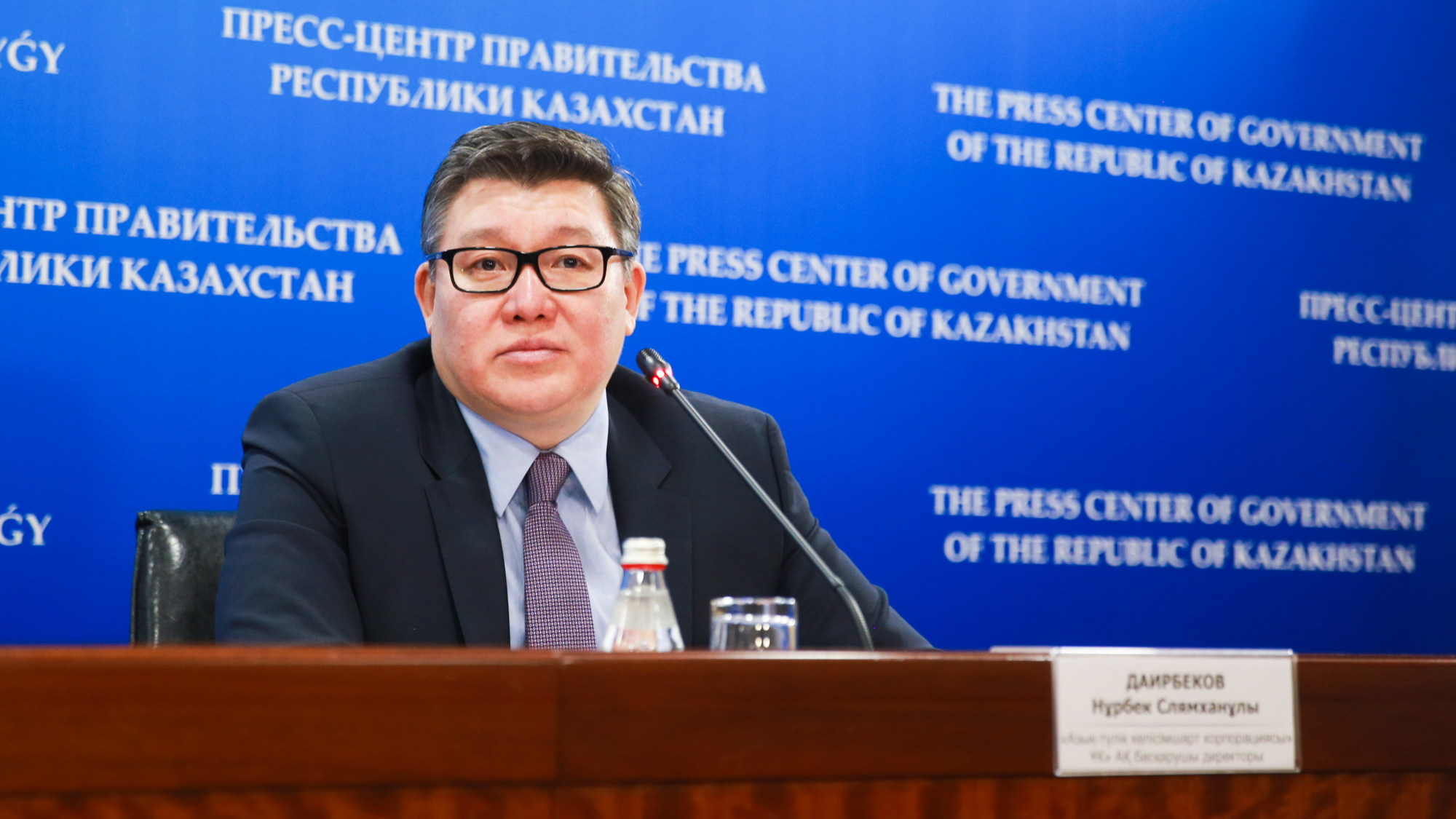
In addition, today the export potential in wheat is about 6 million tons, in barley — about 2 million tons and other grains — about 300 thousand tons. Thus, a total of 8.3-8.5 million tons of grain exports from the 2019 crop are forecast in total.
On the sidelines of the Government, the Minister of Defense Nurlan Yermekbayev spoke about further actions being taken in Arys. According to him, there are no direct threats to city residents now. The town is almost completely cleaned. The main work is carried out on the territory of the military unit, where the explosions occurred.
“We have an order from the Supreme Commander, there is a state need, there are demands from the residents of Arys to quickly remove all the remaining ammunition. We are working on it now,” Yermekbayev said.
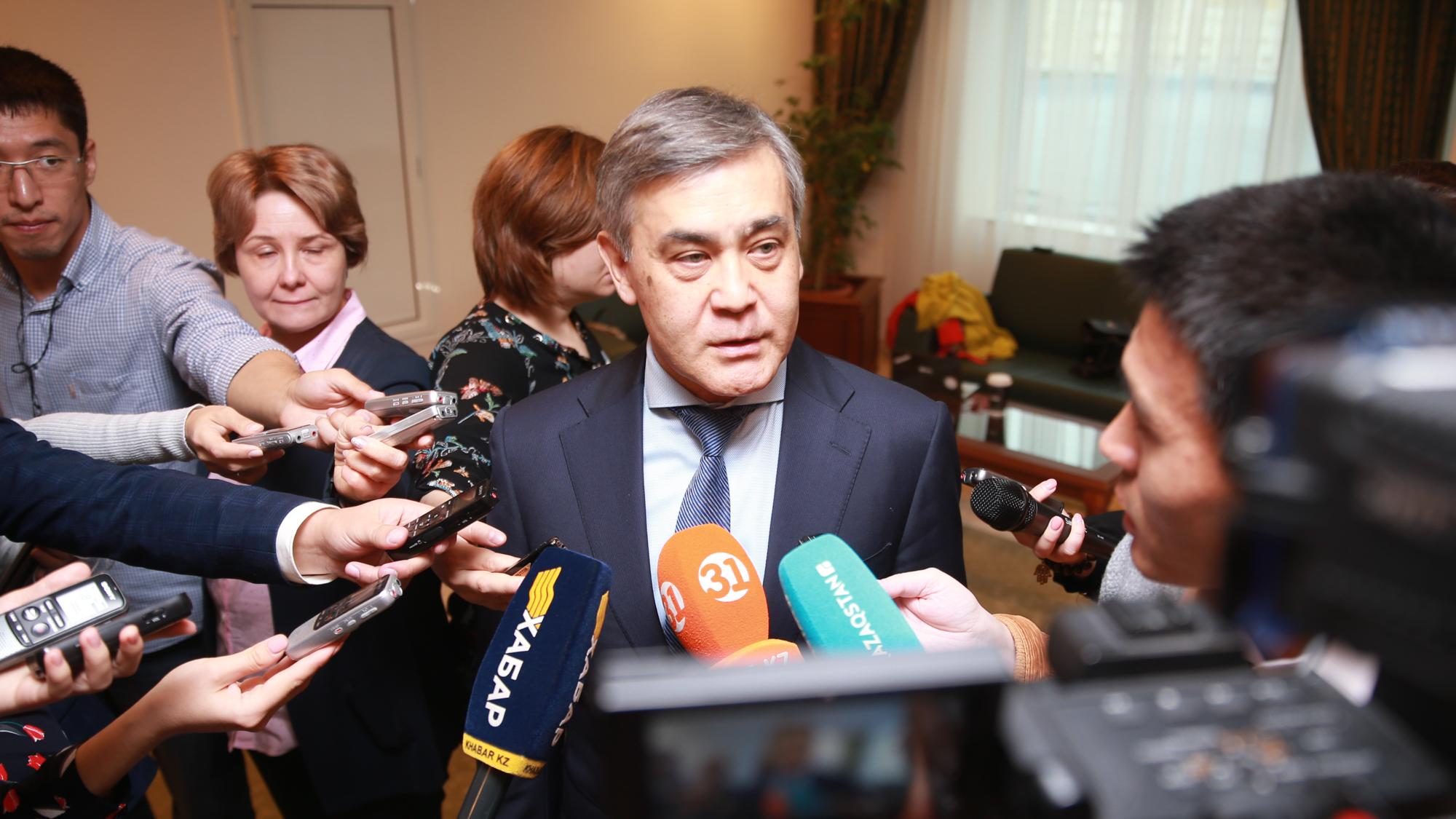
For this, according to him, the necessary number of military personnel has been attracted — more than 700 people. However, conscripts and military servicemen are not involved in this work. Only highly qualified, trained sappers, engineers, military police.
“The task of freeing the city from ammunition can only be carried out by professional military personnel. This work, of course, is risky. The military are consciously taking risks in order to ensure the safety and tranquility of the inhabitants of Arys and to fulfill the task before us. Apart from the military, no one can accomplish this task. This requires highly qualified, trained professionals,” the minister added.
Minister of Ecology, Geology and Natural Resources Magzum Mirzagaliev spoke about the conditions permitting hunting of Red Book bustards in the territory of the Kenderli-Kayasan Reserve. According to him, only two countries that have relevant agreements with Kazakhstan have this permission — Qatar and the UAE. According to the minister, these countries finance environmental measures in Kazakhstan. In addition, about $350 million was invested in various social projects, such as the construction of maternity hospitals, schools, kindergartens, and clinics in the Turkistan region.
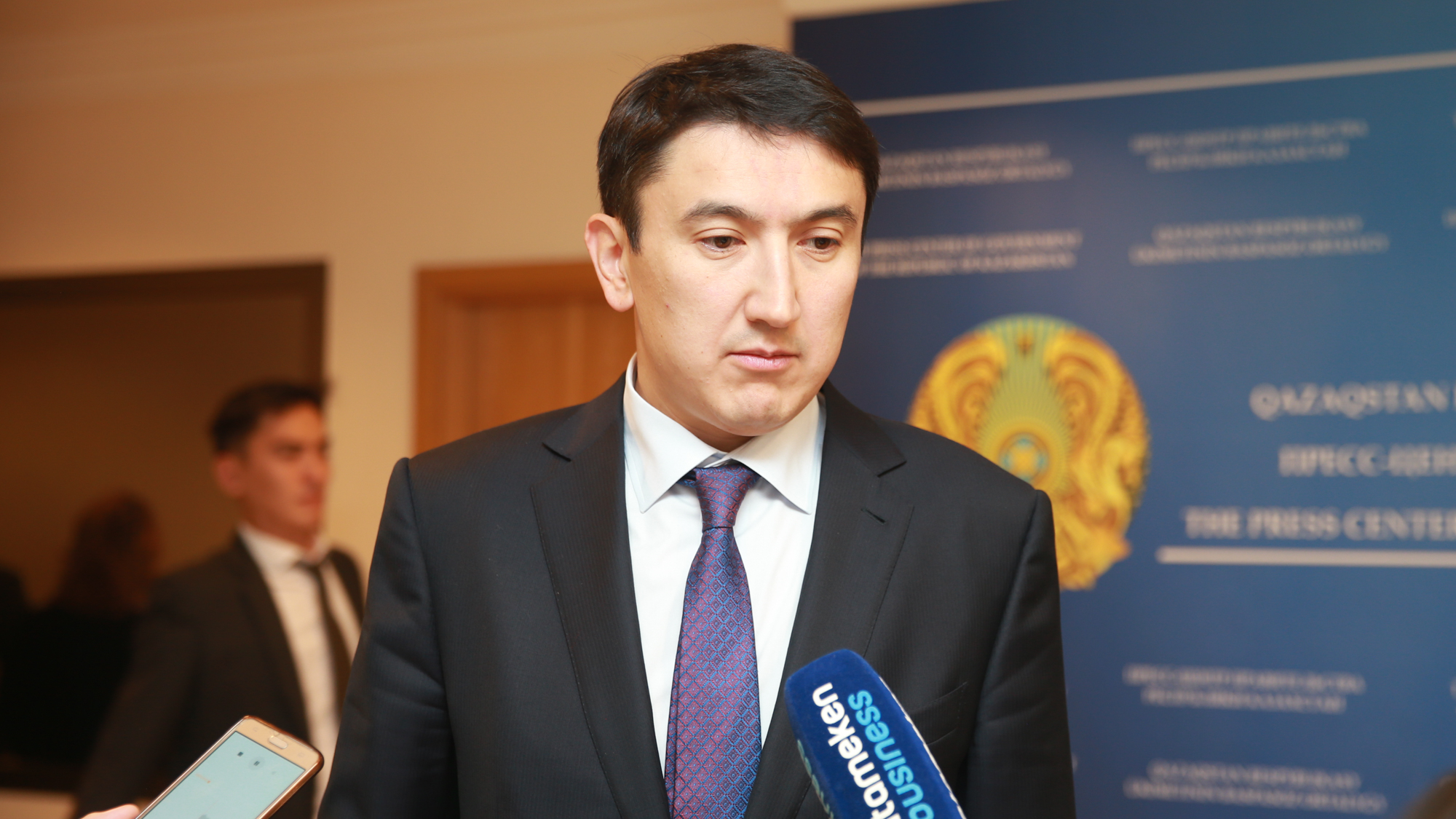
“You have to understand that this program has been conducted with the Arab side for quite some time — about 10 years. Over the years, they have funded various environmental protection measures for $61 million, that is, the construction of a center for the bustards, this is material and technical support, etc. Annually the bustards are released into the nature, we expect that this year we will release about 6 thousand. Over all years, 20 thousand 489 bustards were released, 969 were seized,” Mirzagaliyev said.
According to him, hunting other Red Book animals is prohibited. The exception is scientific research.
Stay updated about the events of the Prime Minister and the Government of Kazakhstan - subscribe to the official Telegram channel
Subscribe